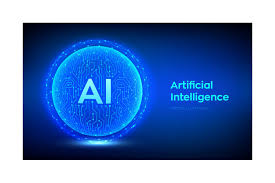Artificial Intelligence (AI) is an transformative technology that is changing industries, enhancing daily life, and driving innovation across many fields. In its essence, artificial intelligence (umělá inteligence) refers to the development of computer systems capable of performing tasks that usually require human brains. These include thinking, reasoning, problem solving perception, as well as language comprehension.
Types of AI
AI can be broadly categorized into two types: Narrow AI and General AI. Narrow AI also referred to Weak AI is developed for specific tasks like voice recognition, recommendation systems, as well as autonomous vehicle. These systems work with a limited range of capabilities and excel in their specific tasks, but are unable to expand beyond their programmatic capabilities. General AI, also known as Strong AI, represents a higher-level AI, with the capability to understand, learn, and apply intelligence to a variety of tasks at a human-like scale. In the present, General AI remains largely abstract and is the focus for ongoing study.
Key Components of AI
Machine Learning (ML) Machine Learning (ML): A subset of AI, ML involves training algorithms on huge datasets to identify patterns and then make predictions or decisions without the need for explicit programming. Techniques such as supervised learning, unsupervised learning, and reinforcement-learning are integral to ML.
Natural Language Processing (NLP): This branch of AI is focused upon the interactions between computers and human language. NLP helps machines understand interpret, recognize, and produce human language, which is a prerequisite for applications like chatbots and the translation of language, as well as sentiment analysis.
Computer Vision Computer Vision: This field examines the way computers process and process images from the world. Computer vision is utilized to recognize faces, objects detection, and autonomous driving.
robotics AI plays a crucial role in robots, as it enables robots to perform complex tasks in a controlled manner. Robotics integrates AI together with engineering mechanics to create machines that can perform tasks from exploration to manufacturing.
Applications of AI
AI’s applications are numerous and numerous. In healthcare, AI algorithms assist in diagnosing illnesses, personalizing treatment plans, and predicting the outcomes of patients. In finance, AI is used for fraud detection, algorithmic trading along with customer care. It is also used in everyday activities. AI powers virtual assistants such as Siri and Alexa improves online shopping experiences by offering personalized suggestions as well as optimizes logistics and supply chain management.
Ethical Considerations
As AI is evolving it is essential to consider ethical issues. Questions like data privacy as well as biases in algorithms as well as job displacement and the potential for misuse of AI technologies need to be dealt with. Ensuring transparency, accountability, and fairness in AI systems is crucial in reducing the risks and increasing trust with AI applications.
Future Prospects
Future of AI has enormous potential. The constant advancements in AI research will provide superior, efficient, and integrated solutions across diverse areas. As AI technology continues to advance and advance, it will be a major factor in shaping the future of our society, transforming how we live, work as well as interact with our surroundings.



